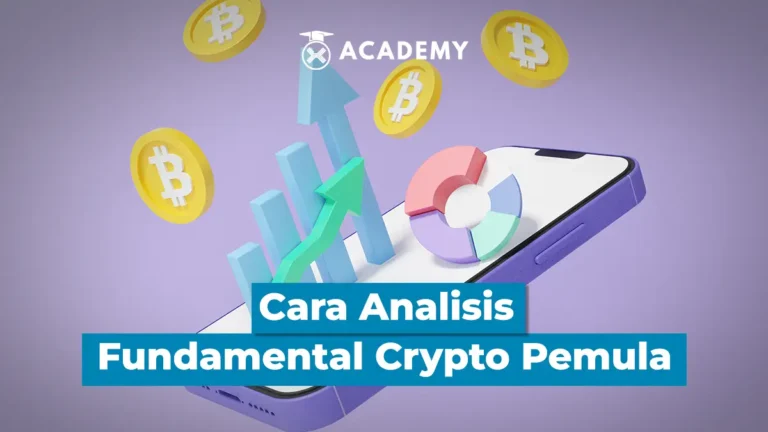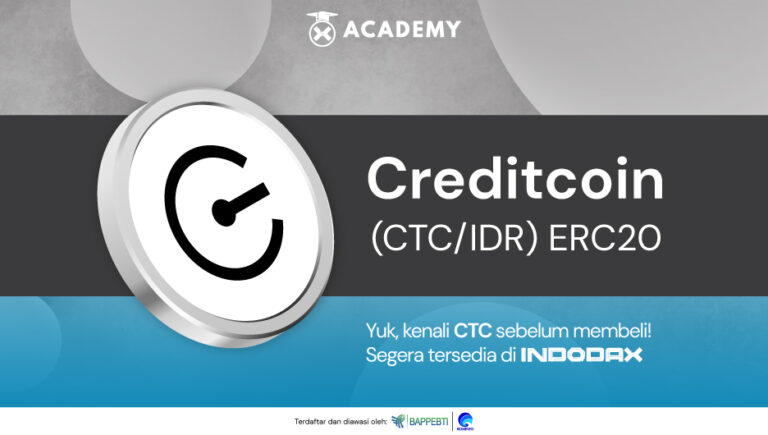A new career opportunity in investigations known as crypto detective has emerged as a result of the advent of cryptocurrencies and blockchain technology.
Today, there is a growing demand for people who can understand the complexities of blockchain transactions and trace digital footprints due to the increasing use of cryptocurrencies and their potential for criminal activity.
Investigating and uncovering acts of fraud, money laundering, scams, and other illegal acts involving crypto assets is an important task for crypto detectives.
In that regard, seriousness, continuous learning, and a desire to dive into the complexity of blockchain transactions are required to become a crypto detective.
Now, to understand more about what a blockchain detective is, from his duties and responsibilities and investigation methods to the steps to become a blockchain detective, check out the following review.
What is a Blockchain Detective?
Quoting ccn.com, an individual who focuses on investigating crime, fraud, or other illegal acts related to crypto assets, is known as a crypto detective.
Crypto detectives can find evidence, trace transactions, and identify people involved in dubious or criminal activities in the crypto space due to their expertise and experience in digital forensics, blockchain technology, and crypto asset analysis.
Blockchain transactions are tracked and analyzed, wallet addresses are identified, and digital evidence is collected by crypto detectives using various investigative tactics, tools, and procedures.
They may work with law enforcement organizations, cyber security businesses, or financial institutions to support criminal investigations or offer professional opinions on issues involving crypto assets.
Blockchain Detective Duties and Responsibilities

The job of a crypto detective is to use their knowledge of blockchain data analysis, pattern recognition, and interpretation of transaction information to look for suspected fraud, money laundering, hacking, or other illegal activities within the crypto ecosystem.
Their work often involves monitoring the latest trends, laws, and technological developments to successfully navigate the rapidly changing world of crypto assets and blockchain technology.
Blockchain Detective Investigation Method
Quoting coinedition.com, a crypto detective has options to bring their target to justice; each investigator has different methods. However, crypto detectives have a few key ways to catch criminals, among them:
On-Chain Analysis
Blockchain detectives are most famous for their on-chain analysis. It may sound obvious, but the first step for any detective is to understand how to read every part of a blockchain transaction.
Block explorers allow them to see the details of every blockchain transaction in the network’s history. This is just one tool in a blockchain investigator’s arsenal.
However, they often use multiple tools to read transactions and visualize the movement of assets between accounts.
As you can imagine, on-chain transparency is especially useful when trying to see where money is moving-they can track the amount of assets sent as well as to whom and when they were sent.
They can even track individual wallets, effectively monitoring the movement of money in and out of criminals’ accounts.
Off-Chain Analysis
Off-chain analysis is how investigators link real-world identities to criminal acts on the blockchain. Therefore, it is just as important as using block explorers.
To explain, investigating social media accounts, domain registrations, and other web2 information sources is an integral part of connecting crypto criminals with their real-life identities.
Even if investigators have intricate details about complex crypto schemes, it is difficult, if not impossible, to get justice without knowing who the suspicious wallets belong to.
So, blockchain investigators also use the successful investigation methods of their counterparts on the web2.
These investigations help detectives connect digital fraudsters with their real-life identities. Furthermore, investigators need to report the information to the relevant authorities.
The Importance of Collaboration and Certification
Quoting the coinedition.com page, to become a blockchain detective, it is important to make contact with other industry experts, including blockchain experts, law enforcement officials, and cyber security experts.
To increase knowledge and stay current with the latest trends, it is also important to follow debates, attend conferences, and join online forums dedicated to crypto asset research.
Furthermore, the Certified Cryptocurrency Investigator (CCI) certification offered by Blockchain Intelligence Group is one credential you might want to consider getting if you want to specialize in crypto asset investigations.
The certification will strengthen your reputation as a crypto investigator by validating your knowledge.
Steps to Become a Blockchain Detective

According to coinedition.com, a combination of technical expertise, investigative skills, and familiarity with blockchain technology is required to become a crypto detective.
The important steps that can help someone start the journey of becoming a crypto detective are as follows:
Education and Research
Start by developing a deep understanding of cryptocurrencies, blockchain technology, and how they work. Learn the basics of cryptography, decentralized systems, and how various blockchain networks operate.
Learn How to Use the Blockchain Explorer Tool
Improve your skills in using blockchain explorer tools, which allow you to browse and examine transactions on various blockchain networks.
Learn about well-known explorer websites, such as Etherscan, Blockchain.com, or Blockstream Explorer.
Stay Up to Date with the Latest Crypto Asset Regulations
Stay abreast of changes in the regulatory environment affecting cryptocurrencies. Get to know how your jurisdiction’s legal framework, compliance standards, and regulations affect cryptocurrency transactions and investigations.
Develop Analysis and Investigation Skills
Learn data analysis, pattern recognition, and forensic methods relevant to blockchain investigations to enhance your investigative capabilities.
Develop the skills necessary to connect the dots in complex cryptocurrency networks, identify wallet addresses, and track and analyze transactions.
Continuous Learning
Maintain your curiosity and always expand your knowledge base. Stay current with the latest technological developments, new crypto assets, and emerging market trends.
Take part in continuous learning activities such as workshops, research, and professional development courses.
ZachXBT, the Designated 2D Detective in the Crypto Industry
Did you know that it turns out that ZachXBT, a private detective in the crypto asset industry, has alerted the crypto community about a series of recent fraudulent actions involving some fraudsters working together, as quoted from the coinedition.com page.
In a series of posts he made over the past weekend, ZachXBT noted that fraudsters have returned to the blockchain ecosystem, outwitting less suspicious users across various protocols.
A blockchain analyst first alerted users on the X platform about the return of a group of fraudsters who previously stole large amounts of funds from projects, such as Magnate, Kokomo, Lendora, and Solfire.
They have now resurfaced with a new project called LeaperFinance on the Blast platform. According to information from ZachXBT, the scammers are financing an address on Blast with about $1,000,000 in funds that have been laundered from previous projects and have now started adding liquidity to attract more victims.
Meanwhile, a crypto detective shared traceable details on how the scammers transferred funds through various wallets and chains, including Ethereum bridges and swap transactions.
He noted that in the previous case, the fraudsters waited for the Total Value Locked (TVL) to increase to seven digits before stealing all the funds that users deposited into the protocol, as well as falsifying KYC documents by using unreliable auditing firms.
Additionally, ZachXBT stated that the same group of fraudsters were also involved in the ZebraLending project on the Base platform. He noted that the product was still active, with a TVL of $311,000, and he warned users to withdraw all funds they had deposited into the protocol.
ZachXBT also revealed that the same group was involved in the newly launched GloriFinance project on the Arbitrum network. The blockchain analyst also noted that the protocol has raised up to $1,400,000 in TVL.
In particular, he asserted that the three fraudulent projects mentioned are modified versions of Compound V2.
Providing more evidence, ZachXBT found that a close look showed that all the top GLORI holders had provided liquidity using funds from the Crolend/HashDAO/HellHoundFi scam.
He also alleged that the scammers have launched fraudulent schemes on platforms, such as Base, Solana, Scroll, Optimism, Arbitrum, Ethereum, Avalanche, and so on.
Conclusion
In conclusion, blockchain detectives play an important role in the fight against crime in the crypto world by providing investigative services essential in identifying, exposing, and following up on criminal acts in the blockchain and cryptocurrency ecosystem.
Blockchain detectives use their technical expertise, in-depth knowledge of blockchain, and investigative skills to trace transactions, identify criminals, and provide the necessary evidence for legal proceedings.
Furthermore, for individuals interested in starting a career as a blockchain detective, there is a strong drive to contribute to security and justice in the crypto ecosystem.
By gaining a deep understanding of blockchain technology, developing investigative skills, and staying current with the latest trends and developments, they can become valuable assets in protecting crypto asset users from criminal threats and strengthening the integrity of the crypto market.








 Polkadot 9.78%
Polkadot 9.78%
 BNB 0.37%
BNB 0.37%
 Solana 5.77%
Solana 5.77%
 Ethereum 1.84%
Ethereum 1.84%
 Cardano 1.53%
Cardano 1.53%
 Polygon Ecosystem Token 2.91%
Polygon Ecosystem Token 2.91%
 Market
Market


